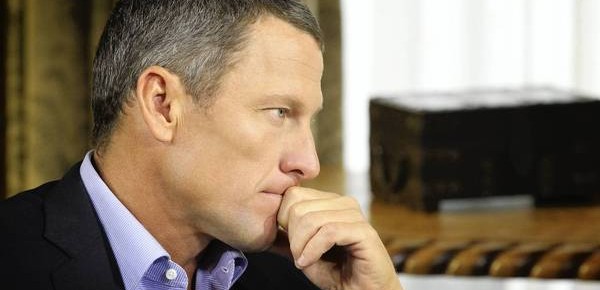Lance Armstrong owes Manti Te’o a thank you card. The bizarre unfolding narrative about the football star’s fake Twitter girlfriend made Armstrong’s confessional interview with Oprah a comparative non-event this week.
Watching Armstrong continue to deny and deflect these allegations has been disappointing. Like many, many people, I was inspired by his string of Tour wins and active campaign against cancer. As it became increasingly clear that performance enhancers and blood doping was wildly rampant in professional cycling, and Armstrong was one of many offenders, his aggressive and confrontational denials only accelerated his fall from grace.
The worst part is, he didn’t have to fall from grace. At least fall so far.
Here’s just a few of the things Armstrong could have done differently – and how small businesses can learn from his crises management mistakes.
1. You can’t escape the truth
Armstrong spent an awful lot of time denying any wrong doing – but that wasn’t the truth. Lies only delay the inevitable, especially in this brave new world of computers and interwebs.
So, if you’re a small business – what do you do if you’re caught in a bad situation? Tell the truth. The entire truth. Don’t gloss over details. Don’t leave things out. Tell the whole truth. It’ll come out eventually.
2. Stay ahead of the storm
The best damage control is proactive, not reactive. If you know something bad is on the verge of coming to light, it’ll be better if it comes from you.
Don’t believe it? Look at what happened with David Letterman’s sex scandal. Nothing.
When murmurs began, he dedicated a monologue to addressing the specifics of what everyone was talking about. He was candid and direct. Since he’d revealed everything before the web was covered with rumors and speculations, the potential media storm was more or less prevented.
Compare Letterman’s scandal to Armstrong’s. Most people barely remember Letterman’s. Armstrong’s is alive and well.
3. If you’re completely honest, you can control the narrative
Imagine if when the first allegations were raised against Armstrong, he held a press conference. Imagine he thanked all the people who had cheered him on, who had donated money to cancer research, and those who used his story as inspiration to take care of themselves and others.
Imagine that he then discussed how prevalent blood doping and performance enhancing drugs were in the sport of cycling, and that despite his incredible athleticism, the only way he could compete on the professional level was by buying into that culture – a culture that was accepted and unspoken of in the world of cycling.
Imagine he’d then said he would voluntarily return his yellow jerseys, and that from this point forward, he would dedicate his life to two goals. One, continuing his campaign against cancer by fundraising and raising awareness. The new second goal would be to clean up the world of professional cycling, so that athletes could compete on an even and untainted playing field.
Lance Armstrong would still be a hero.
It’s inevitable your small business will have ups and downs. The way that you handle those, though, may determine whether your brand survives to handle future ups and downs.
—
Joe Filipas is the founder of Sugo Media, and works in advertising in Minneapolis. He likes cycling, but isn’t nearly good enough to be a candidate for blood doping.


Thanks for a great article. I guess my only disagreement would be about limiting the effective lessons to small businesses – I think big businesses would do well to incorporate the same lessons/principles.
I think you’re absolutely right, Andy! This is practical advice for companies of any size – or individual people for that matter.
– Joe
Yes I agree that being truthful always helps you to become stronger and confident to face difficulties. Also you get lot of support in resolving any challenges faced during difficult times. So promise yourself to be truthful.
I really like this – it is so true that lies breed lies. If lies are told, it is possible to forget which lies are told for which situation and to keep up with the narrative – telling the truth is not a problem because it is what happened and although may create difficult situations, if handled correctly, they are usually better than being found out later – if this happens all credibility has gone and noone will ever trust you again
Nice article. One of the sayings I have used as my practice is “It’s a wicked web we weave if at first we deceive”. Simple straight forward and never have to worry about what you said for the truth trumps all. and of course don;t have to worry what I may have told X or Y . By always saying the truth it doesn’t change. As Roger said Universal Applicable.
A lot of failed politicans would have done much better had they followed this advice as well.
What I have observed over the years is that the big news delivery networks love to work a scandal; complete with a good mix of truths and untruths. The networks are always willing to devote massive resources to such a scandal.
But what happens in a case like David Letterman’s is that by telling the whole truth up front, all the wind was let out of the sails, and the scandal boat is left dead in the water.
Now, what this means to the business of the networks (like NBC, ABC, and CBS), is that the event is no longer scandal-worthy. It is just another news event that is only worthy of the same resources that the many other news events may garner for the day.
I would certainly want to take the advice of Joe Filipas. Which is to say, be not scandal-worthy; rather to be just another news event.